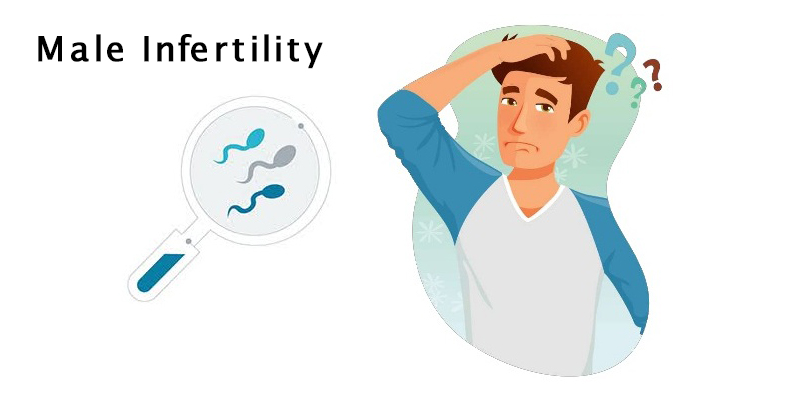Infertility affects millions of couples worldwide, with approximately one-third of cases attributed to male factors alone. Male infertility occurs when a man experiences difficulties in achieving pregnancy with a fertile female partner despite regular, unprotected intercourse.
Understanding the common causes and risk factors associated with male infertility is essential for diagnosis, treatment, and management.
1. Low Sperm Count (Oligospermia)
Low sperm count, or oligospermia, is one of the primary causes of male infertility. It occurs when the semen ejaculated during intercourse contains fewer sperm cells than normal. Various factors can contribute to low sperm count, including hormonal imbalances, genetic factors, medical conditions such as varicocele (enlarged veins within the scrotum), infections, and lifestyle factors like smoking, excessive alcohol consumption, and certain medications.
2. Poor Sperm Motility (Asthenospermia)
Sperm motility refers to the ability of sperm cells to move effectively through the female reproductive tract to fertilize an egg. Poor sperm motility, known as asthenospermia, can significantly reduce the chances of successful conception. Causes of poor sperm motility include genetic factors, hormonal imbalances, infections, structural abnormalities of the reproductive tract, exposure to environmental toxins, and certain medications.
3. Abnormal Sperm Morphology (Teratospermia)
Sperm morphology refers to the size, shape, and structure of sperm cells. Abnormal sperm morphology, or teratospermia, occurs when a significant percentage of sperm cells have abnormal shapes or structural defects. These abnormalities can impair the ability of sperm to penetrate and fertilize an egg. Causes of abnormal sperm morphology may include genetic factors, hormonal imbalances, infections, exposure to environmental toxins, and lifestyle factors such as smoking and excessive alcohol consumption.
4. Erectile Dysfunction (ED)
Erectile dysfunction (ED) is the inability to achieve or maintain an erection sufficient for sexual intercourse. While ED itself does not directly cause male infertility, it can significantly impair a man’s ability to engage in sexual activity and ejaculate semen into the female reproductive tract. Causes of erectile dysfunction include psychological factors (such as stress, anxiety, or depression), underlying medical conditions (such as diabetes, hypertension, or cardiovascular disease), hormonal imbalances, and lifestyle factors (such as obesity, smoking, or excessive alcohol consumption).
5. Ejaculatory Disorders
Ejaculatory disorders are conditions that interfere with the normal process of ejaculation, including premature ejaculation, retrograde ejaculation, and anejaculation (inability to ejaculate). These disorders can prevent sperm from reaching the female reproductive tract during intercourse, thereby reducing fertility. Causes of ejaculatory disorders may include neurological conditions, hormonal imbalances, structural abnormalities of the reproductive tract, medications, and psychological factors.
6. Genetic Factors
Genetic factors can play a significant role in male infertility, including chromosomal abnormalities, gene mutations, and inherited conditions such as Klinefelter syndrome and Y chromosome microdeletions. These genetic abnormalities can affect sperm production, sperm quality, and reproductive function, leading to infertility or reduced fertility.
Conclusion
Male infertility can have various causes, ranging from hormonal imbalances and genetic factors to lifestyle choices and underlying medical conditions. Identifying the underlying cause of male infertility is crucial for determining appropriate treatment options and improving the chances of successful conception. If you and your partner are experiencing difficulties conceiving, it’s essential to consult with a healthcare provider or fertility specialist for comprehensive evaluation, diagnosis, and personalized treatment recommendations.





Comments